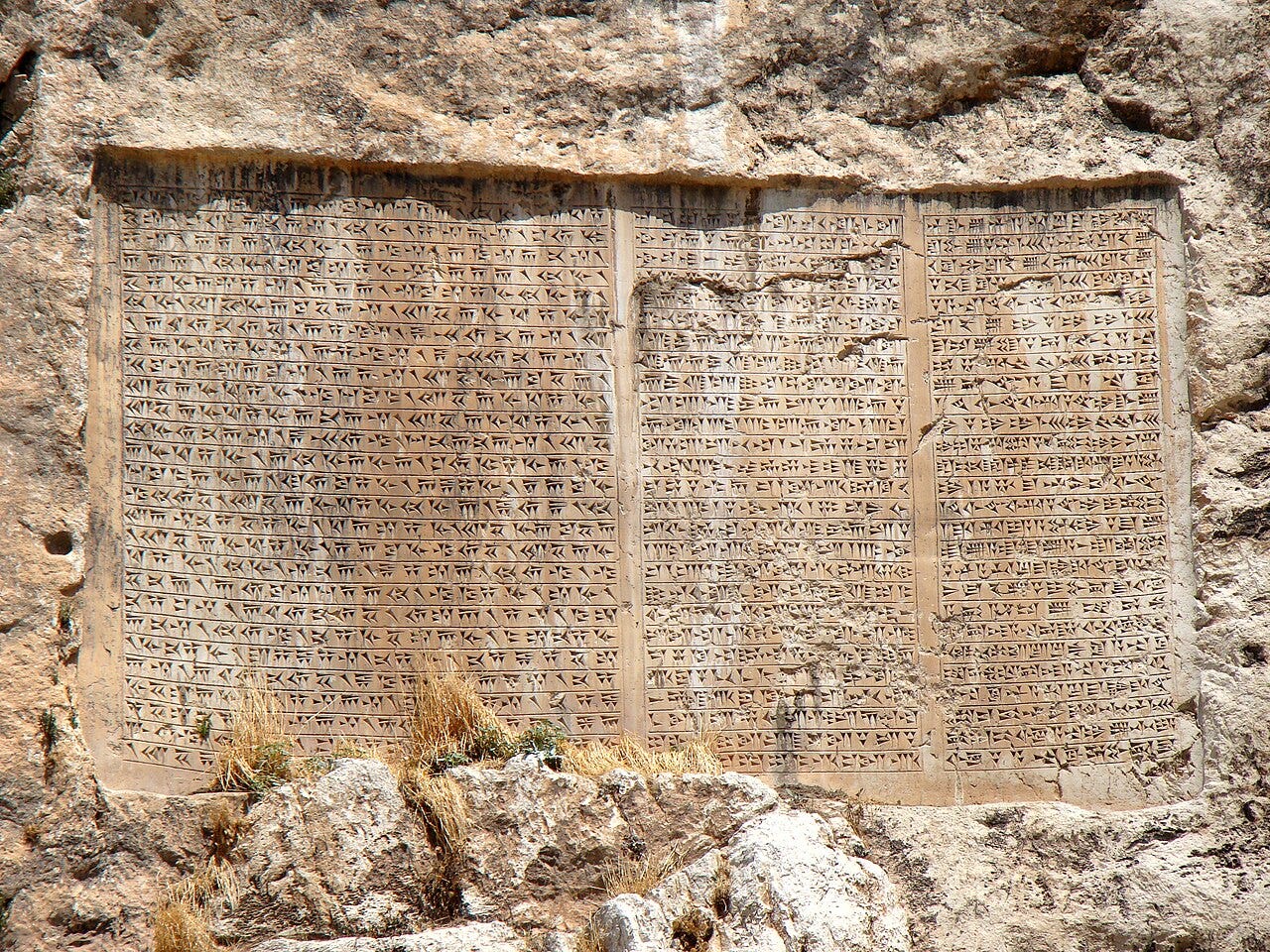Purim 5784: Breaking News About Achashveirosh (and Possibly Haman)!
I never thought I'd find a NEW pasuk in Tanach about Achashveirosh which sheds light on Haman's liability, but here we are! This is a half-baked idea but I want to share it in case it leads somewhere.
The Torah content through Shushan Purim has been sponsored by Yael. Thank you, Yael, and thank you to all those who support my free shiurim, podcasts, videos, and articles through your sponsorships, Patreon memberships, and paid Substack subscriptions. May Hashem grant the entire Jewish people a happy Purim and a complete redemption from all our enemies!
Scroll to the end of the article (past the paywall) for a link to the PDF.

Purim 5784: What Sin Got Haman Killed?
Preface: I have a long history of spending the small amount of time on Purim day between shacharis and my seudah hurriedly writing an article about Purim based on whatever half-baked epiphanies I had. Some years the article gets finished and other years it ends up in my draft folder. I tell myself, “I’ll finish it on Shushan Purim!” but that almost never ends up happening. This year I’ve decided to break the cycle and publish one of this year’s half-baked epiphanies, but because of its half-bakedness, I’m going to keep it in the paid subscriber only tier. One day, God willing, I’ll finish the idea and write a public article.
This year I found myself bothered by the Megilah’s account of Haman’s rise to power at the beginning of Chapter 3:
After these things, King Achashverosh promoted Haman the son of Hammedata, the Agagite, and exalted him, placing his seat above all the officers who were with him. And all the king's servants who were at the king's gate would kneel and bow to Haman, for so the king had commanded regarding him; but Mordechai would not kneel or bow.
Seemingly, Haman’s sudden promotion has no clear cause or context. Granted, if we assume that Haman is Memuchan — the adviser responsible for Vashti’s fate in Esther 1:16 — then this might explain why the king favored him. Indeed, this is the view of Chazal (Megilah 12b), which even the pshat-oriented commentators entertain as a possibility (see Ibn Ezra’s first commentary on Esther 3:1). But if we assume that this is NOT the pshat, and Haman and Memuchan are two different people, then what accounts for Haman’s meteoric rise?
Over Shabbos I found an answer in an expected place: the Targum Rishon to Megilas Esther. Before sharing what the Targum says, I’d like to prime you with a question. If I asked: “What sin got Haman killed?” you’d PROBABLY say, “his genocidal decree against Israel.” If you wanted to give a naturalistic account, you might point to any of the numerous bad decisions he made throughout Megilas Esther. But that’s not what the Targum Rishon holds. Here’s the Targum’s rendition of Esther 3:1:
After these things, the Middas ha'Din (God’s "attribute" of strict justice) went up before the Master of the universe and said, "Didn't the evil Haman go from Shushan to Jerusalem to stop the building of the [Second] Temple? And now King Achashveirosh has promoted Haman, son of Hammedasa, who is a descendant of Agag, descendant of the evil Amalek, and has appointed him as the head over everyone, placing his throne over all the officers who were with him!" The Master of the universe responded, saying: "It is not fitting in My eyes to annihilate him [now], for he is not yet well-known in the world. Desist from him until he becomes great and well-known to all the peoples, and afterwards I will exact retribution from him for all the antagonistic acts that he and his ancestors have done to Israel."
I understand the last part: Haman and his Amalekite ancestors had killed and tormented our people for centuries, and it makes sense for Hashem to punish them for that. But what’s this business about Haman stopping the building of the Beis ha’Mikdash?
When I first saw this, I assumed it was just a midrash, and wasn’t intended to be taken literally. Unlike the Targum Onkelos on Chumash or the Targum Yonasan on Neviim, the Targumim to Esther are chockfull of midrashim. Chazal, on principle, ascribe all sorts of sins and villainous acts to the evildoers in Tanach, as the R’ Tzvi Hirsch Chajes writes: “when [expounding on] the actions of evildoers, [Chazal] followed an important principle: to charge them with all possible abominations.” (I spoke about at length in my shiur, Midrashic Embellishment: Why Did Chazal Villainize “the Bad Guys” and Vindicate “the Good Guys”?). I figured the Targum ascribed the halting of the rebuilding of the Mikdash to Haman because he was an evildoer.
But then a memory lit up in the deep recesses of my brain.
Keep reading with a 7-day free trial
Subscribe to The Rabbi Schneeweiss Substack to keep reading this post and get 7 days of free access to the full post archives.



